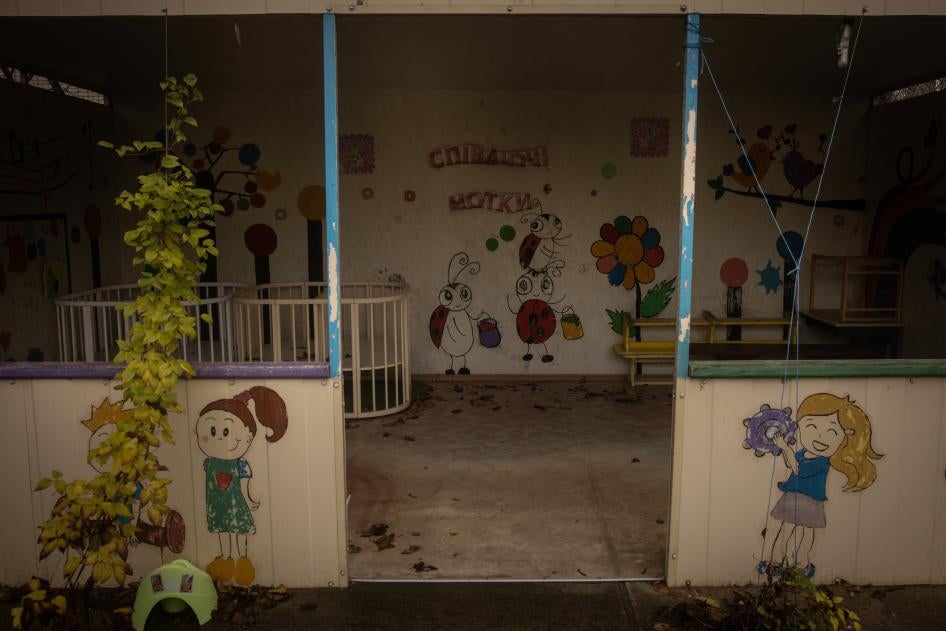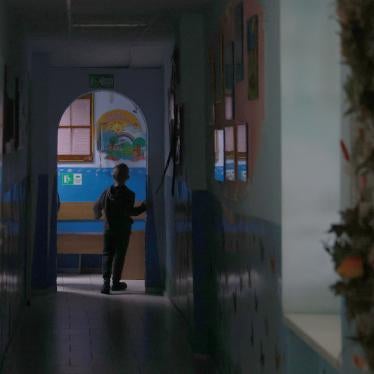The Russian authorities’ forced transfer and deportation of Ukrainian children has made headlines, and last week’s meeting between Russia’s children’s rights commissioner, Maria Lvova-Belova – wanted by the International Criminal Court for her alleged role in these crimes – and a top UN official on children and armed conflict stirred controversy.
Earlier this month, more details on these transfers came to light through the findings of an investigation by the Organization for Security and Co-Operation in Europe (OSCE).
Human Rights Watch has extensively documented how Russian officials and their proxies used coercive measures to forcibly transfer Ukrainian civilians, including those fleeing hostilities, to Russia or Russian-occupied areas of Ukraine. We have also documented the forced transfer of children and the war’s devastating impact on children in residential institutions.
Although the new report, issued under the OSCE’s Moscow Mechanism, acknowledges uncertainty regarding exact numbers, its conclusions are certain: Ukrainian children were forcibly deported to Russia or transferred within Russian-controlled territory. This constitutes a war crime. It also concluded that forcibly deported Ukrainian children had been subjected to “numerous and overlapping violations” of their rights.
The report noted that forcibly deported children were placed in an unfamiliar environment far removed from Ukrainian language, culture, customs, and religion. It also found that many such children were exposed to military training and “to pro-Russian information campaigns often amounting to targeted reeducation.”
The report also underscores how changes in Russian law enabled authorities to swiftly give Russian citizenship to Ukrainian children, facilitating their guardianship and adoption by Russian families in Russia, even though many of the children may have living relatives, including in Ukraine.
The report found that Russian authorities didn’t promote the return of Ukrainian children to their home country or the reunification of Ukrainian children separated from their families. In fact, the report says, Russia seems to be creating obstacles for reunification. Russia has no centralized list of transferred children. Additionally, the children are repeatedly moved from place to place, and sometimes referred to by Russian, not Ukrainian, names. Even if Ukrainian families manage to locate a child, they encounter numerous logistical and financial difficulties in returning that child to Ukraine.
Russia should comply with its international obligations and ensure the immediate return of Ukrainian children to their country and families.









